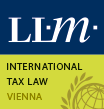Riël Franzsen
Riël Franzsen occupies the South African Research Chair in Tax Policy and Governance in the Faculty of Economic and Management Sciences at the University of Pretoria and is a former director of the African Tax Institute at the University of Pretoria. He holds two undergraduate degrees and a doctorate in law with a thesis on South Africa’s real estate transfer tax. He also holds a master’s degree in creative writing. He has acted as policy advisor in Africa, Asia, Europe, and the Caribbean on behalf of various entities, including the International Monetary Fund (IMF) and World Bank, on especially property tax issues - most recently in Sri Lanka, Uzbekistan and Vietnam in Asia and Ethiopia, Zambia and Zimbabwe in Africa. He has been a co-instructor for property taxation courses offered on behalf of the IMF (Austria, Singapore and Saint Lucia) and on behalf of the Lincoln Institute of Land Policy (China and Slovenia). He is a member of the Board of Advisors of the International Property Tax Institute (IPTI) and has authored or co-authored numerous conference papers, journal articles, and book chapters on land and property taxes in particular. He is co-editor and co-author of Property Tax in Africa - Status, Challenges, and Prospects (2017) and also Property Tax in Asia - Policy and Practice (2022), published by the Lincoln Institute of Land Policy.Courses:
African Tax Systems
This lecture aims to develop an understanding of tax systems in Africa and the context within which these systems originated and are still evolving. This necessitates a brief review of legal systems encountered in Africa as well as the different tax families. The relative importance of different taxes, such as corporate income tax, value-added tax and property taxes, will also be discussed. In a continent richly-endowed with natural resources, the appropriate taxation of petroleum and mining, in particular, is becoming increasingly important. Regional integration and tax harmonization will also be reviewed. Tax policy and tax administration reforms (such as the establishment of autonomous revenue authorities) in selected African countries will be discussed.
Back to list

